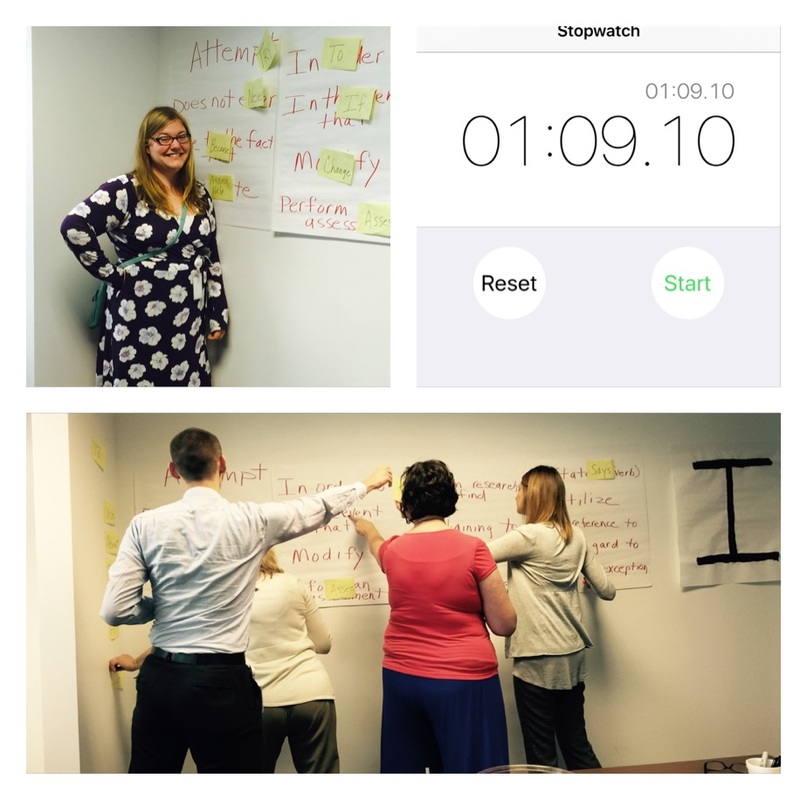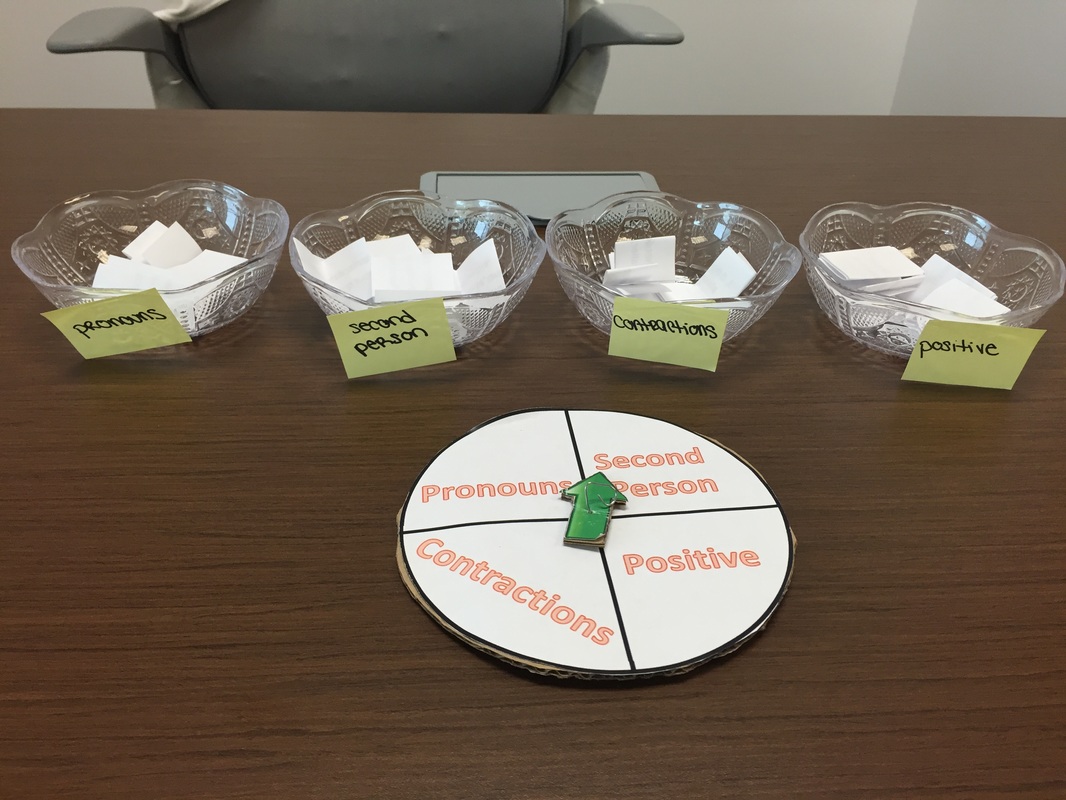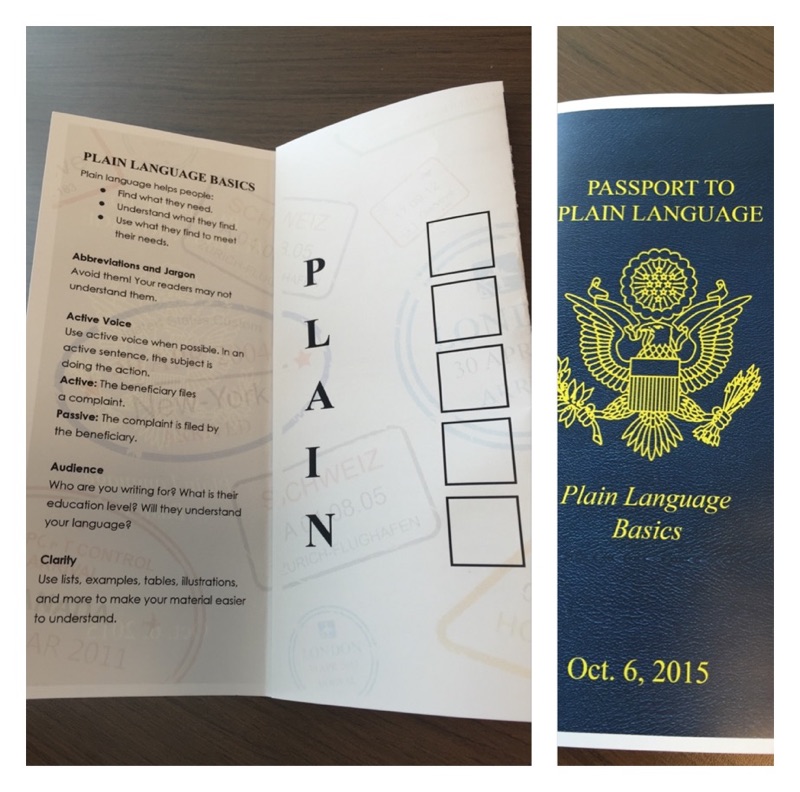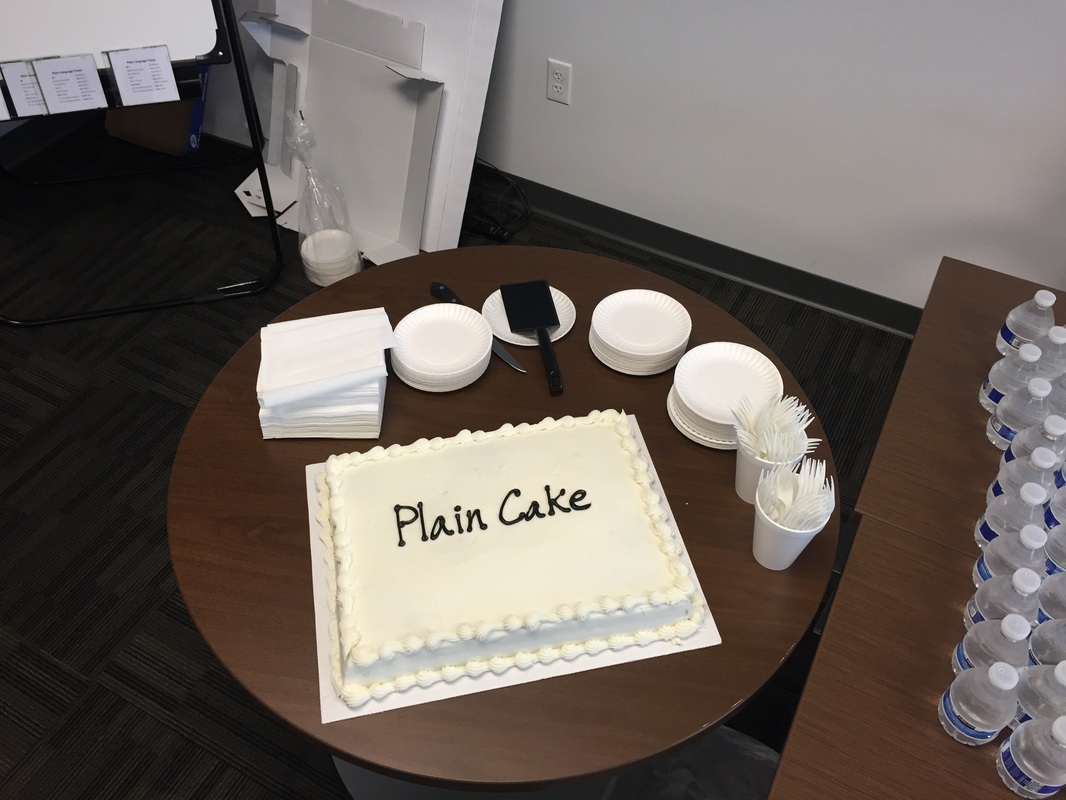|
October 13th is International Plain Language Day and to celebrate, the editors at my work threw a plain language party! Using plain language in your writing helps explain complex information in a simple, easy-to-understand way. Plain language is especially applicable to anyone working with federal agencies. In 2010, President Obama signed the Plain Writing Act, which says that federal agencies should promote “clear Government communication that the public can understand and use.” The act goes on to define “plain writing” as “clear, concise, well-organized, and follows other best practices appropriate to the subject.” In true overdressed editor fashion, we themed this open-house plain throughout from the outfits to the snacks. Dressed in plain white tees (or blouses) and black pants, the editors supplied plain snacks, including plain M&Ms, saltines, and Nilla wafers, to name a few. Attendees received a passport to plain language upon arrival and traveled around the room to 5 different stations dealing with various areas of plain language: jargon, active voice, tone, word choice, and simplicity. After completing each station, travelers received a stamped letter on their passport to eventually spell out PLAIN. Once they had all 5 letters, they enjoyed a thick slice of “Plain Cake” while listening to the Plain White T’s and Weird Al’s “Word Crimes.” Happy International Plain Language Day!
0 Comments
If you haven’t heard of Divergent by Veronica Roth, you may have taken up residence under a rock, or perhaps you are deliberately avoiding the YA trilogy craze (see Twilight and Hunger Games). The general premise of this trilogy is a dystopian society divided into 5 factions based on virtues, but some members of society don’t fit into just one faction, which ultimately causes an uprising. IMHO, the Divergent book trilogy is action packed and engaging, although the movie leaves much to be desired. Regardless of your thoughts on the merit of said book series or film, the factions and rebels have popularized some pretty spectacular vocabulary words. This list reveals their definitions and arms you with intelligent commentary for any teenage birthday party.
Origin: Middle English abnegacioun, from Late Latin abnegātiōn-, abnegātiō, from Latin abnegāre “to refute, decline, deny” First Known Use: 14th century
Origin: Middle English amite, from Middle French amité, amitié, from Medieval Latin amicitas, from Latin amicus friend, friendly + -itas -ity; akin to Latin amare to love First Known Use: 15th century
Origin: French and Latin; French candeur, from Latin candor, from candēre to shine, be white First Known Use: 14th century
Origin: Middle English daunten (also, to tame), from Old French danter, alteration (probably influenced by Old French dangier power, jurisdiction) of donter, from Latin domitare to tame, from domitus, past participle of domare to tame, conquer (+ less) First Known Use: 1588
Origin: Middle English erudit, from Latin eruditus: learned, skilled, experienced; from past participle of erudire to polish, instruct; from e- + rudis rude, unpolished, unskilled, ignorant First Known Use: 15th century
Origin: Medieval Latin divergent-, divergens, present participle of divergere First Known Use: 1696
Origin: Latin insurgent-, insurgens, present participle of insurgere to rise up, insurge First Known Use: 1765
Origin: allegiance + -ant; Middle English aligeaunce, from Anglo-French allegeance, alteration of ligeance, from lige liege First Known Use: 1613 Toodles,
|
AuthorI'm a Virginia-native uprooted to Indianapolis to marry my husband and start our sweet family of 4. As an overdressed editor, I love planning parties and good reads. Archives
April 2018
Categories
All
|










 RSS Feed
RSS Feed
